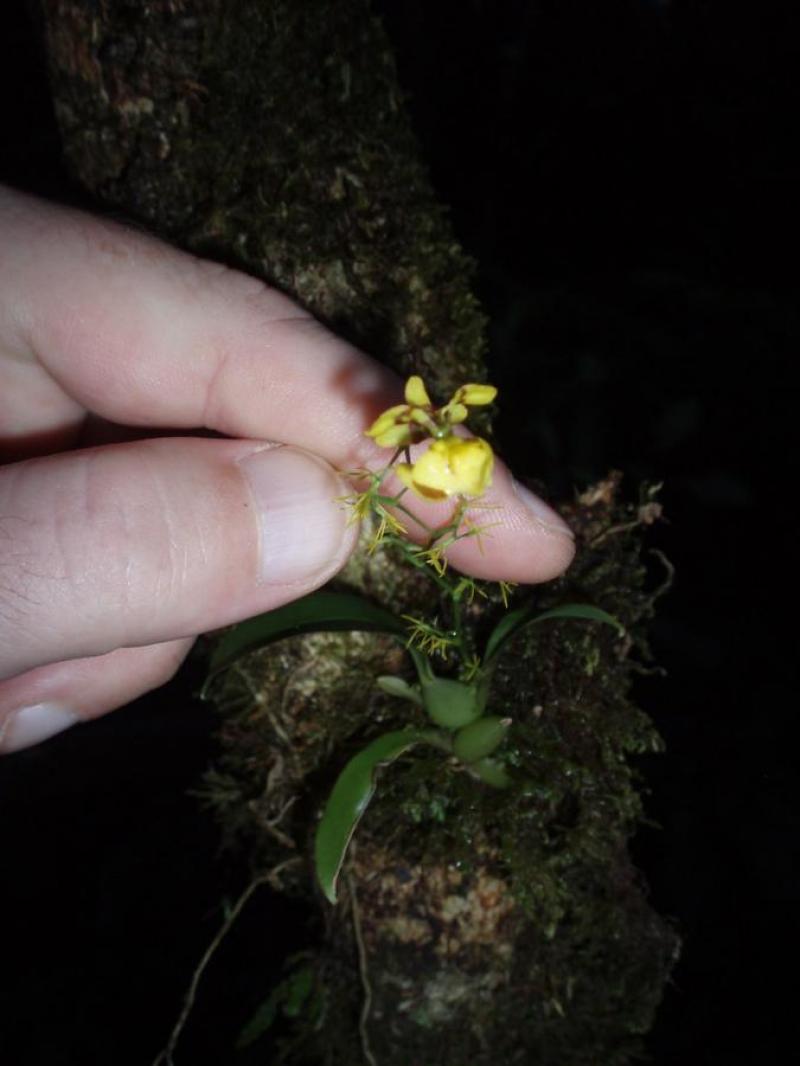Oncidium heteranthum
Also known as: The Differently Flowered Oncidium or Oncidium heteranthum h.f. semialbum Oncidium heteranthum h.f. album Oncidium heteranthum h.f. albescens Oncidium zonatum in the subfamily: Epidendroideae
Native to: Costa Rica Departamento del Huila - Colombia Ecuador Mato Grosso do Sul - Brazil Panama Para - Brazil Peru Sao Paulo - Brazil
General Information
The Differently Flowered Oncidium is a cold to warm growing epiphytic orchid belonging to the sub family Epidendroideae native to Costa Rica, Colombia, Ecuador, Brazil, Panama, and Peru. The name refers to the normal and sterile flowers of this species.
Plant Description
Grows to 10-42cm. Each new growth has numerous elliptic oblong shaped leaves that grow to 0.8-34cm long. Pseudobulbs grow to 3-8.5cm
Care Notes
These orchids have a fine root system that can quickly die back if left dry for too long, but also does not like to be kept wet, so water regularly but ensure that the mix is dry before watering.
Climate
Grows at low to high elevations. Rainfall ranges from 10mm to 480mm per day, heaviest in October and lightest in February. Humidity ranges from 67% to 90%, highest in October and lowest in February. Temperature ranges from 8C to 23C, highest in March (11C to 23C) and lowest in January (8C to 19C).
Watering
These orchids are sensitive to excessive watering and should only be watered when they look thirsty. Water infrequently and ensure that the roots are dry before watering. Keep an eye on them especially during hot weather as overwatering can lead to rot, whereas underwatering may result in wilting or shriveling, which while unattractive, will not kill the plant.
Potting
These plants are quite forgiving and will do well repotted ever 2-3 years. The mix should be coarse, well draining, and allow space for air to move and for roots to grow.
Alternatively, these plants will also do well mounted to tree fern or cork slabs, or mounted to trees.
Best time for repotting or mounting the orchids is the end of winter when new growths start to appear. Avoid repotting during hot weather,




